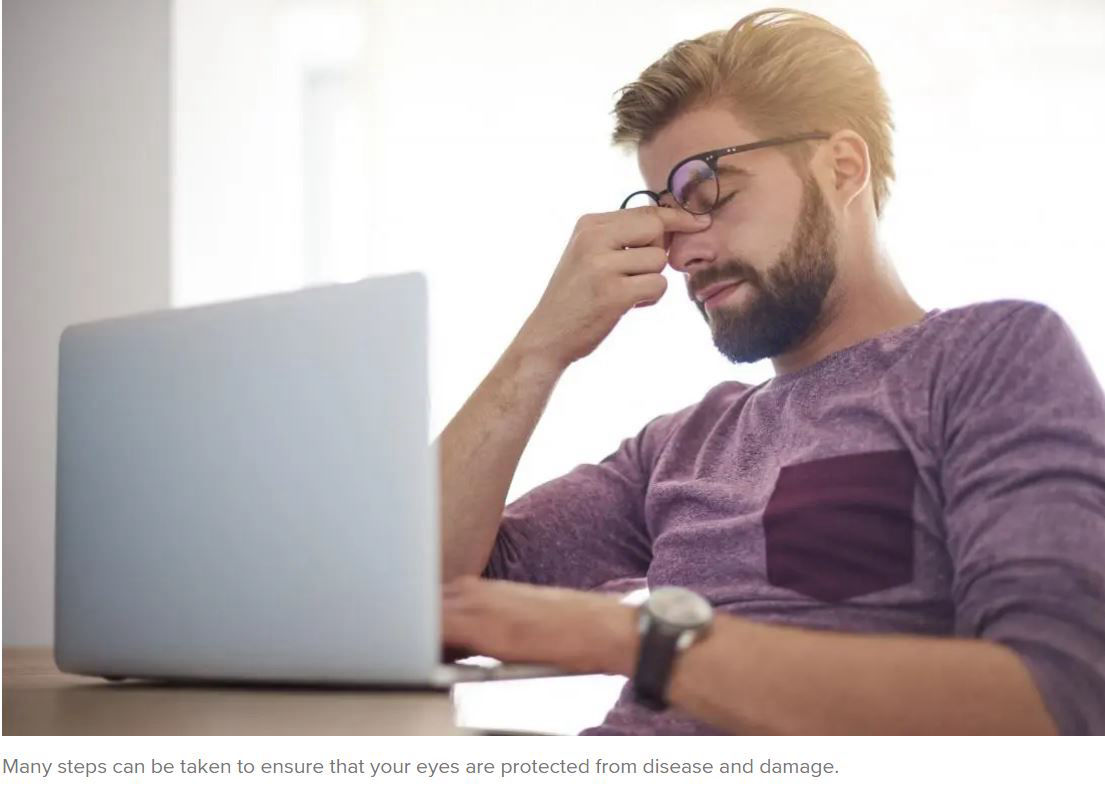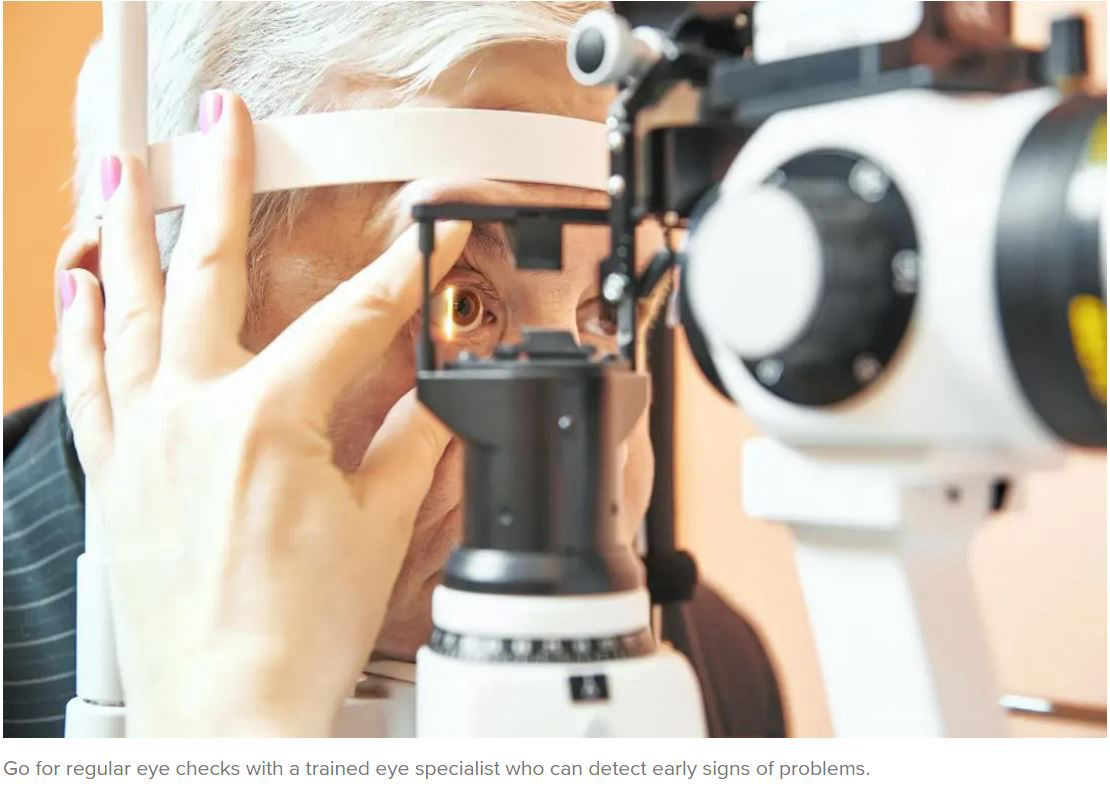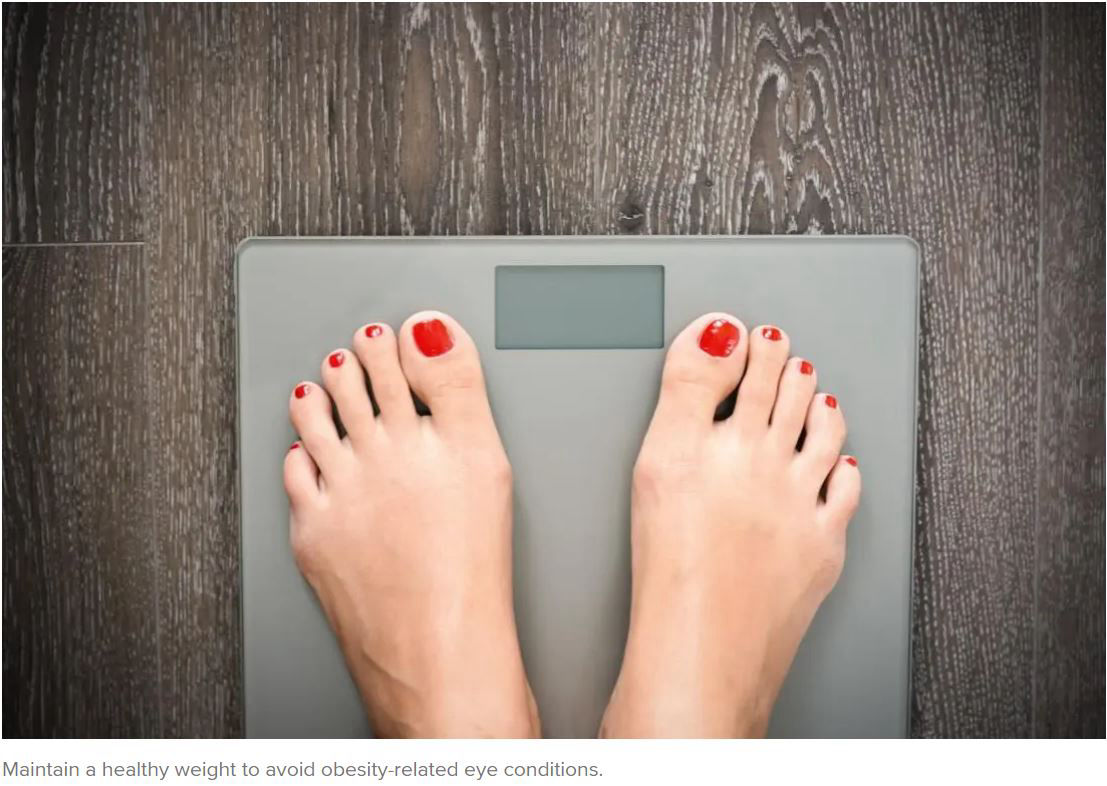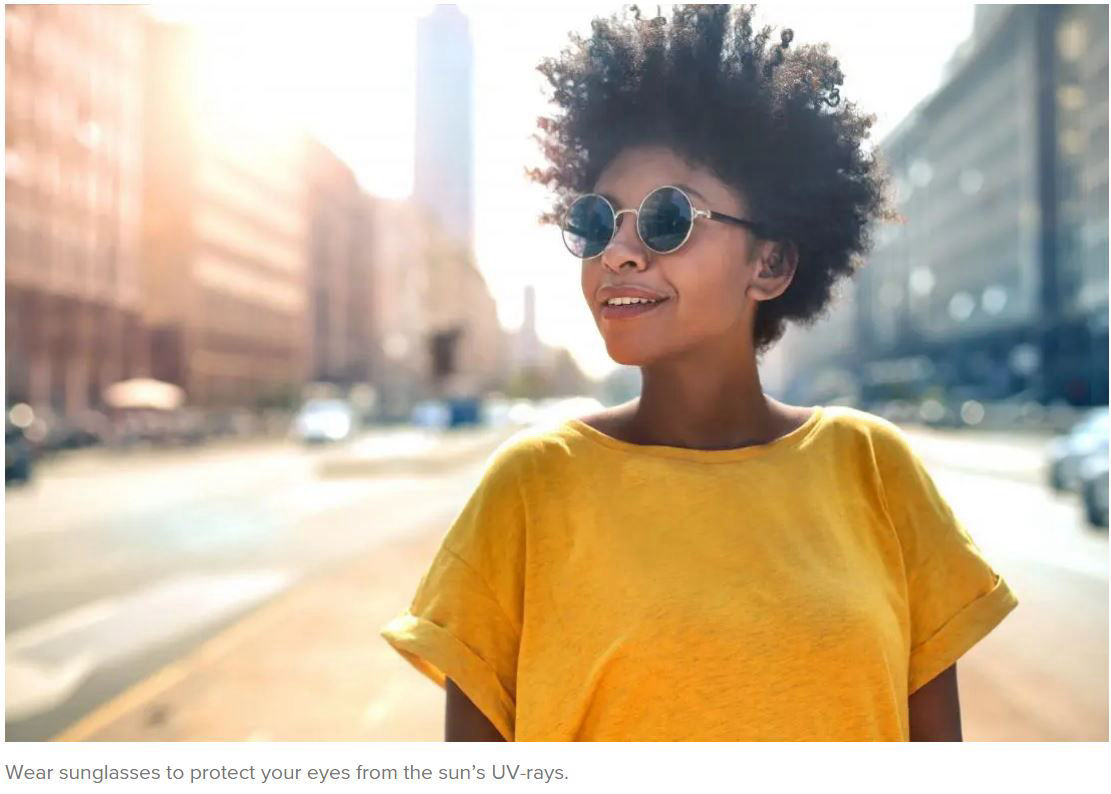

Millions of individuals experience eye problems each year. Some eye issues result in permanent vision loss or blindness, while others can be corrected with contact lenses or glasses.
The National Eye Institute estimateTrusted Source that in the years between 2010 and 2050, the number of individuals affected by the commest eye diseases — including age-related macular degeneration (AMD), cataracts, diabetic retinopathy, and glaucoma — “will double.”
Many of us are resigned to the fact that as we age, our eyesight will deteriorate. But could we improve our vision, protect our sight, and prevent many of the diseases that compromise the health of our eyes?
Medical News Today present five ways to protect your eyes from damage and disease and maintain healthy sight.

The best thing you can do to look after your sight is to go for regular eye tests.
Although your vision may appear to be healthy, there is no way to be 100 percent certain unless a trained professional observes your eyes.
Not only does an eye test determine whether or not you need glasses, but it can also spot eye conditions that can be treated effectively if detected early enough.
A type of eye exam known as a comprehensive dilated eye exam is recommended from the age of 60 upwards, or earlier if you are at an increased risk of certain eye diseases.
During a comprehensive dilated eye exam, an eye care specialist adds drops into each eye to widen, or dilate, the pupil. Once dilated, more light enters the eye, which enables the eye care professional to view the macula, retina, and optic nerve and identify any signs of damage and disease.

It is possible to eat your way to healthy vision. You often hear that eating carrots benefits the eyes, but there are plenty of other foods that are important for good eyesight, too.
Consuming a diet rich in fruits and vegetables has been shown to promote eye health. Dark leafy greens, in particular — including collard greens, kale, and spinach — contain lutein and zeaxanthin, which are antioxidants that help to prevent the formation of cataracts.
Evidence demonstrates that grapes may also support healthy eyes. In a laboratory model of retinal degeneration, scientists showed that a diet enriched with grapes protected the retina against the damaging effects of oxidative stress.
Other research indicated that grapes provide higher levels of antioxidant protection for eyes than lutein alone and may slow or help to prevent AMD.
Studies have found that there are eye health benefits from consuming fish rich in omega-3 fatty acids, such as salmon, halibut, mackerel, sardines, and tuna.
Omega-3 fatty acids may improve ocular surface inflammation and symptoms of ocular irritation that are associated with moderate to severe dry eye. They may also help vision cells to survive future disease or injury.

Being overweight or obese puts you at a higher risk of developing conditions such as diabetes or other systemic disorders, which may eventually lead to vision loss.
It is never too late to get your weight under control by eating a healthful diet and exercising regularly to prevent vision complications.
Research conducted by the University of Melbourne in Australia and Leeds Beckett University in the United Kingdom discovered that considerable weight loss could potentially reverse eye damage caused by diabetes, high blood pressure, and obesity.
Another study recently presented at the 121st Annual Meeting of the American Academy of Ophthalmology, held in New Orleans, LA, reported that individuals who are physically active have a 73 percent lower risk of developing glaucoma than more sedentary individuals. This finding highlights the importance of leading an active lifestyle.

In addition to being a trendy fashion accessory, the most important role of sunglasses is to protect your eyes from the ultraviolet (UV) rays emitted by the sun.
A report by the Vision Council in 2016 revealed that while three quarters of people in the U.S. were concerned about eye issues that may arise from UV rays, only 31 percent protect their eyes with sunglasses when they go outside.
When selecting sunglasses, never opt for style over safety. Look for shades that block 99–100 percent of UVA and UVB radiation and always buy from a reputable source.
Whether you are heading to the beach, surfing some waves, hiking up a mountain, or cheering for your favorite soccer team, be sure to protect your eyes and wear the appropriate sunglasses.

If you work all day at a computer screen, you may forget to blink often and end up with fatigued eyes by the end of the day. The National Eye Institute suggest implementing a 20-20-20 rule.
For every 20 minutes that you spend staring at a screen, look at something else that is around 20 feet in front of you for 20 seconds to reduce eye strain.
Research indicates that half of the world will be short-sighted by 2050 if we continue with the current trend of spending so much time on near-based electronic devices.
The study, which was published in the journal Ophthalmology, suggests that spending more time outdoors and less time doing activities that require constant up-close focusing could be a strategy that may help to reduce the number of people who experience vision loss.
If you need to wear protective eyewear or glasses as part of your job, get into the habit of wearing the appropriate gear at all times to keep your eyes in tip-top shape and prevent damage or eye strain.
Published in MedicalNewsToday
Disclaimer: Envy Eye Care's website offers information about vision services and treatment for informational purposes only. Content herein is not intended as medical advice. If you need to speak with an eye doctor in the Dallas area, please contact our office at 469-490-ENVY (3689) to schedule a consultation. This website and blogs are for informational use only. The content within these pages should not perceived as formal advice, nor does the understanding constitute a formal relationship.
Website Builder Software